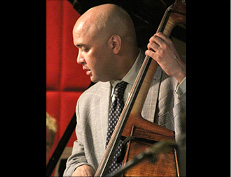Bass Corner / Essential Bass
- Book's Bok - Bertha Hope Swing (medium)
- Sonny's Tune - Sonny Stitt Swing (medium)
- Touching Affair - James Williams Even 8ths
- Lemoncello - Robert Watson Funky swing
- One For Honor - Charles Fambrough Latin/swing (uptempo)
- Reflections In Blue - James Williams Swing (shuffle - medium)
- 18th Century Ballroom - Ray Bryant Swing (medium up)
- Soul Time - Bobby Timmons 3/4 swing (medium)
- Politely - Bill Hardman Swing (medium)
- 18th Century Ballroom - Ray Bryant Swing (medium up)
- Feelin's Good - Hank Mobley Swing (groove - medium)
- La Mesha - Kenny Dorham Ballad
- Sao Paulo - Kenny Dorham Latin (Funky)
- Politely - Bill Hardman Swing (medium)
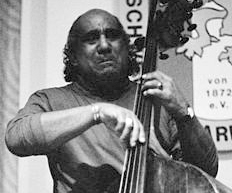
Walter Booker
Walter Booker, from Washington D.C., experimented first with the clarinet and alto sax, and didn't begin playing the bass until he joined the the U.S. Army band in 1959. After his discharge, Booker moved to New York City and began working immediately with the great trumpeter Donald Byrd. Walter quickly worked up the ranks and became a highly sought after musician, working and recording with greats such as Stan Getz, Sonny Rollins and pianist Ray Bryant. However, Booker's most significant relationship in music came when he joined Cannonball Adderley's Quintet in 1969. This version of the quintet helped lead the advent of "soul jazz" and gave Booker even more visibility, for they toured nonstop and released no less than eight albums between 1969-1975. Read more...
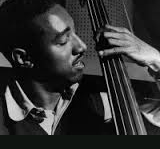
Ray Brown
Ray Brown can be viewed as the paragon of the jazz bassist. His exceptionally driving yet steady sense of time is responsible for unleashing some of the most profound grooves in the history of the music. Brown's remarkable technical facility and harmonic sophistication enabled him to craft compelling bass lines that supported and shadowed the soloists' every move, no matter what direction they chose to go. In addition, Ray Brown is an innovator; he took Jimmy Blanton and Oscar Pettiford's conception and modernized it by increasing the length of his quarter note so that it reached its full value.This combination of smooth, long quarter notes with immense rhythmic intensity became the gold standard and a required treatment for bassists from the bebop era up to the modern day. Read more...
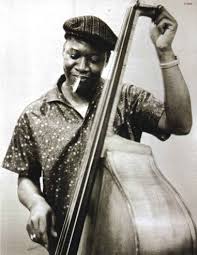
Curtis Counce
Originally from Kansas City, MO, Curtis Counce moved to Los Angeles in 1945 where he became known as one of the great West Coast bassists. It was there he performed and recorded with all the top West Coast musicians of the time including Hampton Hawes, Shelly Manne, Shorty Rogers, and Stan Kenton. Counce also recorded six records as a leader, unlike most bassists of his time. Read more...
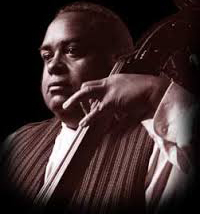
Ray Drummond
Ray Drummond is a bass player and educator with a prolific career. He is best known as a sideman and has appeared on over 300 albums, but he has eight albums as a leader under his belt and close to three decades of experience leading combos. Ray's musical life began at age eight when he took up the trumpet, but he switched to bass at 14. He attended Stanford Business School and worked in business while gigging on the side with musicians like Bobby Hutcherson and Tom Harrell. In 1977, he left the corporate world behind and moved to New York, where he worked with the biggest stars on the scene: Betty Carter, the Thad Jones/Mel Lewis Orchestra, Wynton Marsalis, Woody Shaw, Hank Jones, Jon Faddis, Milt Jackson, Johnny Griffin, Kenny Barron, Pharoah Sanders, and George Coleman. Read more...
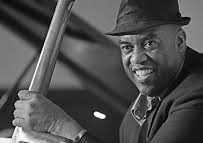
Essiet Okon Essiet
Born in 1956 in Nebraska to Nigerian parents, Essiet Essiet was first recognized for his work with Bobby Watson's group, Horizon. His career quickly grew as he performed and/or recorded with everyone from Art Blakey's Jazz Messengers and Freddie Hubbard, to Benny Golson, Kenny Barron, and Bobby Hutcherson. Essiet currently lives in New York City but can be heard performing just about anywhere in the world. Read more...
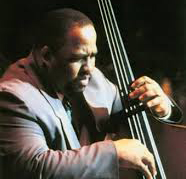
Charles Fambrough
Widely known as one of the most virtuosic bassists to come out of the 1970s, Charles Fambrough made his mark on the jazz scene when he started playing with Grover Washington, Jr.'s band in 1970. Getting the recognition he deserved from this gig, he joined McCoy Tyner and later joined Art Blakey's Jazz Messengers. Fambrough was known for his fearless conviction to whatever style of music he was playing, which led to a successful career in the Latin jazz world as well, performing with Airto Moreira, Flora Purim, and Jerry Gonzalez and the Fort Apache Band. Fambrough was also known for his compositional skills, bringing many of his tunes into the band of the great musicians he played with. He is one of the great jazz musicians to have come out of Philadelphia. Read more...
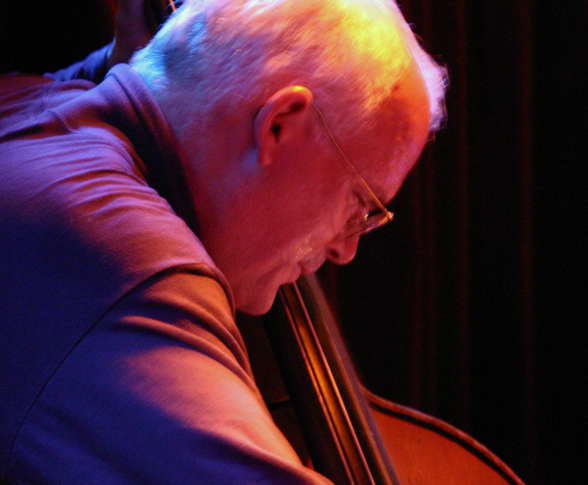
Dennis Irwin
Dennis Irwin played clarinet and alto saxophone early on but it was in college at University of North Texas that he found his true calling: jazz on the acoustic bass. His career began immediately, working with the great Red Garland, but Irwin quickly branched off working with Betty Carter, Art Blakey, Chet Baker, Horace Silver, John Scofield, Michael Brecker, Joe Lovano and many others. Irwin also joined the Mel Lewis Orchestra, which eventually became the Village Vanguard Orchestra. Read more...
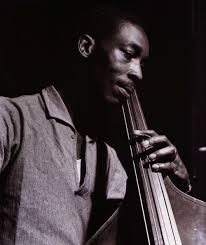
Sam Jones
Sam Jones was most known for his work with the great Cannonball Adderley but he played extensively with all the great bandleaders including Bobby Timmons, Ray Bryant and Kenny Dorham. His discography speaks for his versatility as he could mold to any situation, but Jones was most known for his strong, confident beat and great bass lines. These traits are what led to countless recordings with various leaders, (especially with Cannonball and Nat Adderley) as well as replacing Ray Brown in Oscar Peterson's trio from 1966-1970. Read more...
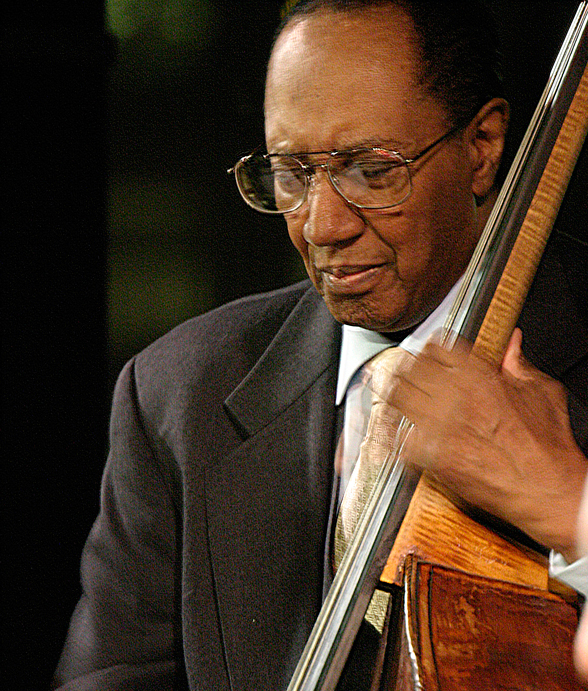
Jymie Merritt
Hailing from Philadelphia, PA, Jymie Merritt grew up in good company, playing his first professional gigs with John Coltrane, Tadd Dameron, Benny Golson and Philly Joe Jones. Merritt is most known for his work with Art Blakey and the Jazz Messengers from 1957-1962. He also played with musicians such as blues guitarist B.B. King, trumpeter/vocalist Chet Baker, Max Roach, Dizzy Gillespie, and Lee Morgan, and led his band "The Forerunners" for several decades in his hometown of Philadelphia. Read more...
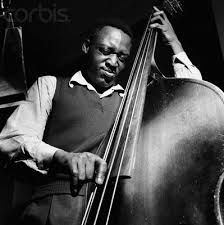
Wilbur Ware
Wilbur Ware's unique approach to the function of the bass in an ensemble has inspired countless musicians to play what they hear, even if it's not the most typical approach. Ware was renowned for his idiosyncratic yet immensely swinging beat that locked down the band rhythmically, as well as his highly creative harmonic sense. Wilbur's ability to play his "own notes," as bassist Ron Carter said, distinguished him from the other practitioners of his instrument. John Coltrane stated in an interview with August Blume, "Wilbur Ware, he's so inventive . . . He doesn't always play the dominant notes . . . He's superimposing things. He's playing around, under and over, so when he comes back you feel everything set in . . . A lot of fun playing that way." Read more...
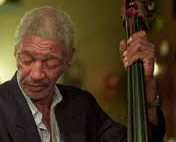
Butch Warren
Butch Warren's discography speaks for itself, ranging from recordings with Herbie Hancock, Dexter Gordon, Joe Henderson and Donald Byrd, to name but a few. His began playing professionally at the age of 14 in his native Washington, D.C. with his father, Edward Warren. After becoming one of the most in-demand bassists in D.C., Warren moved to New York City in 1958 to where he quickly became recognized by Jackie McLean, Kenny Dorham and a long list of other contemporary musicians and producers. Read more...
